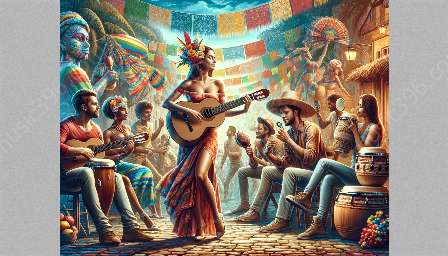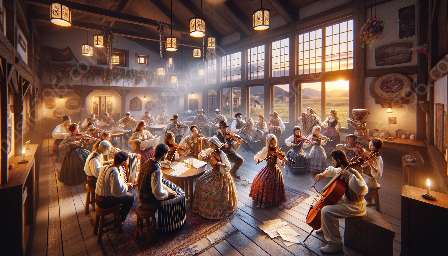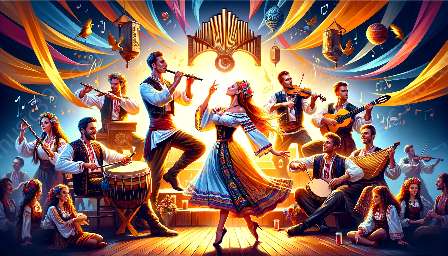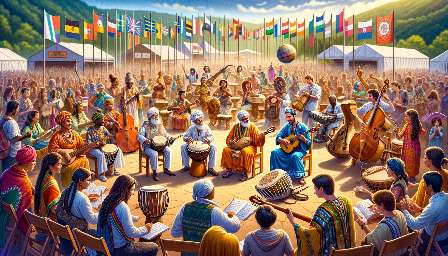The vibrant and rhythmic origins of samba music offer a fascinating journey through the cultural heritage of Brazil and its influence on world music. Discover the lively evolution of this dynamic genre, from its African roots to its modern manifestations, and its enduring impact on global music.
The Roots of Samba: Africa and Brazil
The captivating story of samba music begins with its African roots, deeply intertwined with the history of slavery in Brazil. The rhythmic and expressive musical traditions of West African cultures, particularly those of the Yoruba, Bantu, and Fon people, played a crucial role in shaping the early forms of samba. These traditions, marked by syncopated rhythms, call-and-response vocal patterns, and spirited dance, formed the foundation upon which samba would later flourish.
When the Portuguese colonized Brazil, they brought African slaves to work on the sugarcane plantations. Over time, the fusion of African and European musical elements in the lively urban centers of Rio de Janeiro and Bahia gave rise to the exuberant sounds of samba. The rhythmic complexities of African percussion, coupled with European harmonic and melodic influences, resulted in a unique musical expression that reflected the resilience and creativity of the Afro-Brazilian communities.
The Carnival Connection: Samba Enchants the World
One of the most iconic celebrations of samba music is undoubtedly the carnival in Brazil. The elaborate parades, vibrant costumes, and pulsating rhythms of samba form an integral part of the festive spirit that engulfs the streets of Rio de Janeiro and other Brazilian cities during this annual extravaganza. The carnival has been a vital platform for the dissemination of samba music, allowing it to captivate audiences both in Brazil and across the globe.
During the 20th century, samba music experienced a significant evolution, transitioning from its traditional roots to embrace a more polished and commercial sound. This transformation propelled samba onto the international stage, where it captured the imaginations of musicians and audiences worldwide. As samba transformed into a global phenomenon, artists from diverse cultural backgrounds began to incorporate its infectious rhythms into their own musical creations, contributing to the rich tapestry of world music.
Global Influence: Samba's Enduring Legacy
The impact of samba music extends far beyond the borders of Brazil. Its infectious beats and spirited melodies have influenced a wide array of musical genres, from jazz and bossa nova to contemporary pop and electronic music. Samba's rhythmic intricacies and expressive energy continue to inspire artists and audiences around the world, serving as a testament to the enduring vitality of this dynamic musical genre.
As samba music continues to evolve and adapt to contemporary musical landscapes, its cultural significance remains deeply rooted in the history and traditions of Brazil. The vibrant origins of samba have shaped its trajectory as a global musical force, exemplifying the power of music to transcend cultural boundaries and unite people in celebration and harmony.










































